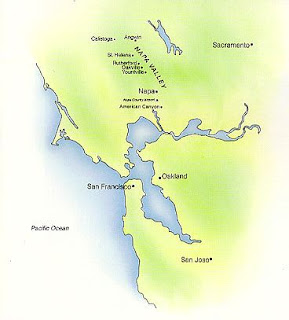Precedential No. 50: Section 2(f) Grandfather Clause Does Not Shield Geographically Deceptive Mark from Section 2(a) Refusal
Applicant Beaverton Foods, Inc. was foiled in its attempt to register the mark NAPA VALLEY MUSTARD CO. for mustard ("MUSTARD CO." disclaimed). Because its product is manufactured in Oregon from seeds grown in the Northern tier states and in Canada, Beaverton faced a geographically deceptively misdescriptive refusal, which it sought to overcome by invoking Section 2(f). The Examining Attorney maintained that registration is barred by Section 2(a), but Applicant contended that its mark had acquired distinctiveness prior to the enactment of NAFTA in 1993, and that the "grandfather clause" in Section 2(f) trumps a Section 2(a) geographical deceptiveness refusal. In any case, it argued, its mark is not deceptive. Both arguments failed to cut the mustard. In re Beaverton Foods, Inc., 84 USPQ2d 1253 (TTAB 2007) [precedential].

The "grandfather clause" of Section 2(f) provides that nothing in Section 2 "shall prevent the registration of a mark which, when used on or in connection with the goods of the applicant, is primarily geographically deceptively misdescriptive of them, and which became distinctive of the applicant's goods in commerce before the date of enactment of the Northern American Free Trade Agreement Implementation Act."
Applicant contended that, according to In re California Innovations, Inc., 329 F.3d 1334 (Fed. Cir. 2003), "geographic deception is specifically dealt with in subsection (e)(3) [of Section 2], while deception in general continues to be addressed under subsection (a)." In other words, according to Applicant, any geographical deceptiveness claim now falls under 2(e)(3). Therefore Section 2(f) evidence of acquired distinctiveness prior to NAFTA overcomes a geographic deceptiveness refusal.
Not so fast, replied the TTAB. California Innovation did not concern a pre-NAFTA 2(f) claim. The grandfather clause in 2(f) was meant "to provide a means for registering those marks that, prior to NAFTA implementation, could have been registrable under Section 2(f), i.e., primarily geographically deceptively misdescriptive marks where the geographic misdescriptiveness was not material to the purchasing decision." [Emphasis supplied]. Applicant's position would "provide a windfall to applicant's seeking to register marks that prior to the NAFTA amendments would have been unregistrable under Section 2(a)."
Therefore, the board held that:
"where an applicant is seeking registration for a mark with a geographic term on the Principal Register under Section 2(f) based on a claim that the mark had acquired distinctiveness prior to December 8, 1993, a geographically deceptive mark is properly refused registration under Section 2(a)."

Turning to the merits of the Section 2(a) refusal, Examining Attorney David Taylor maintained that the primary significance of the phrase NAPA VALLEY is geographic, and that the term NAPA VALLEY is used in connection by third parties in connection with mustard. The Board agreed that NAPA VALLEY is a well known geographic location, that Applicant's goods do not originate there, and that purchasers are likely to believe that the goods originated there. Moreover, by seeking a 2(f) registration, Applicant conceded that the mark is geographically misdescriptive.
The final question, then, was whether the misrepresentation is a material factor in a consumer's decision to purchase the goods. The Board found that it is, "inasmuch as the Napa Valley is known for mustard."
Therefore, the Board affirmed the Section 2(a) refusal.
TTABlog note: For an explanation of the changes wrought by NAFTA with regard to the treatment of geographically misdescriptive marks, read the California Innovations decision.
TTABlog update: On November 6, 2007, Applicant's Request for Reconsideration was denied by the Board (here).
Text Copyright John L. Welch 2007.




0 Comments:
Post a Comment
<< Home